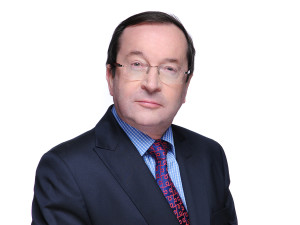
Find Barrister by Expertise:
- View All
- Personal Injury
- Travel & International Law
- Civil Fraud
- Employment
- Crime & Criminal Fraud
- Health & Safety
- Clinical Negligence
- Regulatory & Disciplinary
- Property Damage
- Inquests
- General Common Law
- Industrial Disease
- Insurance
- Sports Law
- Credit Hire
- Professional Negligence
- Public Inquiries
- Public Law
- Trusts & Probate
- Costs
- Mediation & Arbitration
- Commercial
- Public Access
- Education

Alan Jeffreys QC, Defence Counsel in the case of Patel v Arriva Midlands & Zurich Insurance provides a summary in this conventional case which took an unusual turn.
The Claimant was run down by the Defendant’s bus in Leicester in January 2009. He had a cardiac arrest at the scene, together with a traumatic brain injury. He had no memory of the accident. In the medical report served together with the proceedings (examination January 2015) it was said that the claimant had been effectively bed bound since the accident and required two family carers at home from the time of hospital discharge. He was unable to respond to the examining psychiatrist, who diagnosed probable conversion disorder.
In May 2016 covert video surveillance was undertaken by the Defendants. Video footage was obtained of the Claimant and his Litigation Friend (the Claimant’s son). This showed the Claimant’s activity over some hours. He appeared to be fully ambulant without difficulty and conversing with others.
The Claimant was later examined by a neurologist on behalf of the Defendant (August 2016) when he was again bed-bound, mute, and unresponsive to the examination. On being shown the video, the neurologist concluded that the Claimant’s disability was feigned and that his Litigation Friend’s account was a lie.
The claim proceeded to a split trial. Alan Jeffreys QC was instructed about a month before the trial in late October 2017 and he advised that fundamental dishonesty should be explicitly pleaded by detailed amendment to the Defence.
The trial on liability went ahead, and the Claimant succeeded with a finding of 40% contributory negligence. The fundamental dishonesty issue could not be heard until after liability had been determined by reason of the statutory provisions under s 57(1) of the Criminal Justice and Courts Act 2015
(1) This section applies where, in proceedings on a claim for damages in respect of personal injury (“the primary claim”)
(a) The court finds that the claimant is entitled to damages in respect of the claim, but
(b) On an application by the defendant for dismissal of the claim under this section, the court is satisfied on the balance of probabilities that the claimant has been fundamentally dishonest in relation to the primary claim [my emphasis]
The issue therefore arose as to what order should be made as to costs for the liability trial.
The Defendants contended that as long as they undertook to issue their application for dismissal of the claim for fundamental dishonesty within 14 days, the costs of the liability trial should be determined by the judge who heard that application. If successful, it was probable that the Claimant would receive no costs for the liability hearing as the whole claim would have been dismissed. That was the effect of subsections (2) and (3):
(2) The court must dismiss the primary claim, unless it is satisfied that the claimant would suffer substantial injustice if the claim were dismissed.
(3) The duty under subsection (2) includes the dismissal of any element of the primary claim in respect of which the claimant has not been dishonest [my emphasis]
The Claimant contended that he was entitled to his costs forthwith. It was said that the Claimant should receive those costs as it was the normal result of a liability finding, and that such costs should be on an indemnity basis because (a) a Claimant’s Pt 36 in the proportion of 65% liability had almost been secured (b) the Defendants’ alleged conduct in failing to engage with reasonable attempts to settle liability because they refused to attend a JSM shortly before the trial. It was also alleged;
(i) that the Defendant’s application should have been made earlier and before significant costs had been incurred;
(ii) that Defendants should not be given a blank cheque to run up costs simply because the claim might in due course be dismissed;
(iii) that there were good pragmatic reasons why the Claimant should have his costs. He was funding disbursements privately, and would be at a substantial disadvantage. There was not a level playing field.
The trial judge, Derek Sweeting QC sitting as a Deputy High Court Judge, dismissed all of the Claimant’s arguments in a reserved judgment, and the claim will now proceed to a directions hearing for the fundamental dishonesty application. The Claimant now seeks to introduce more medical evidence, and claims that a full quantum trial is necessary in order to comply with subsection (4) and (5) of the Act. The Defendants do not agree and they consider that no additional evidence is required. Watch this space.
Alan Jeffreys QC